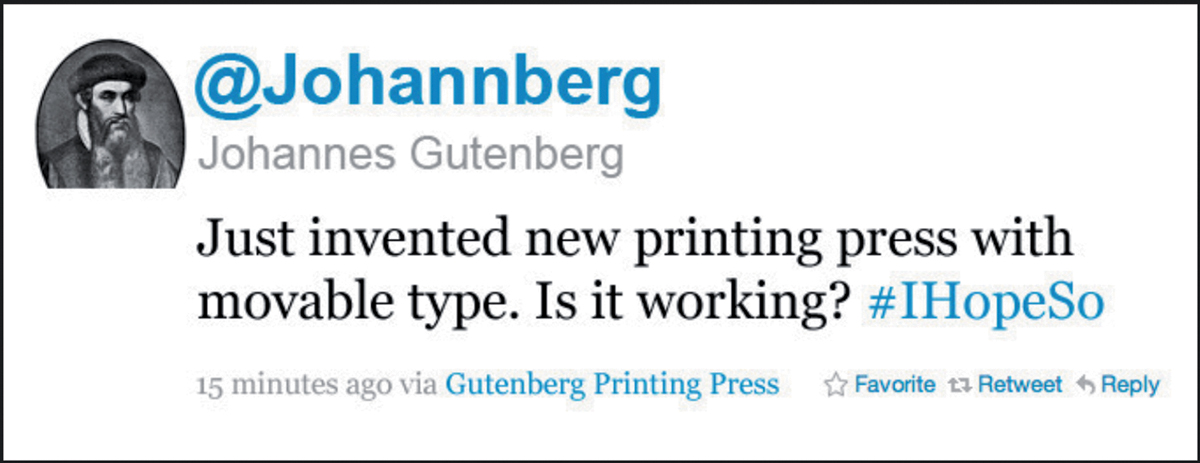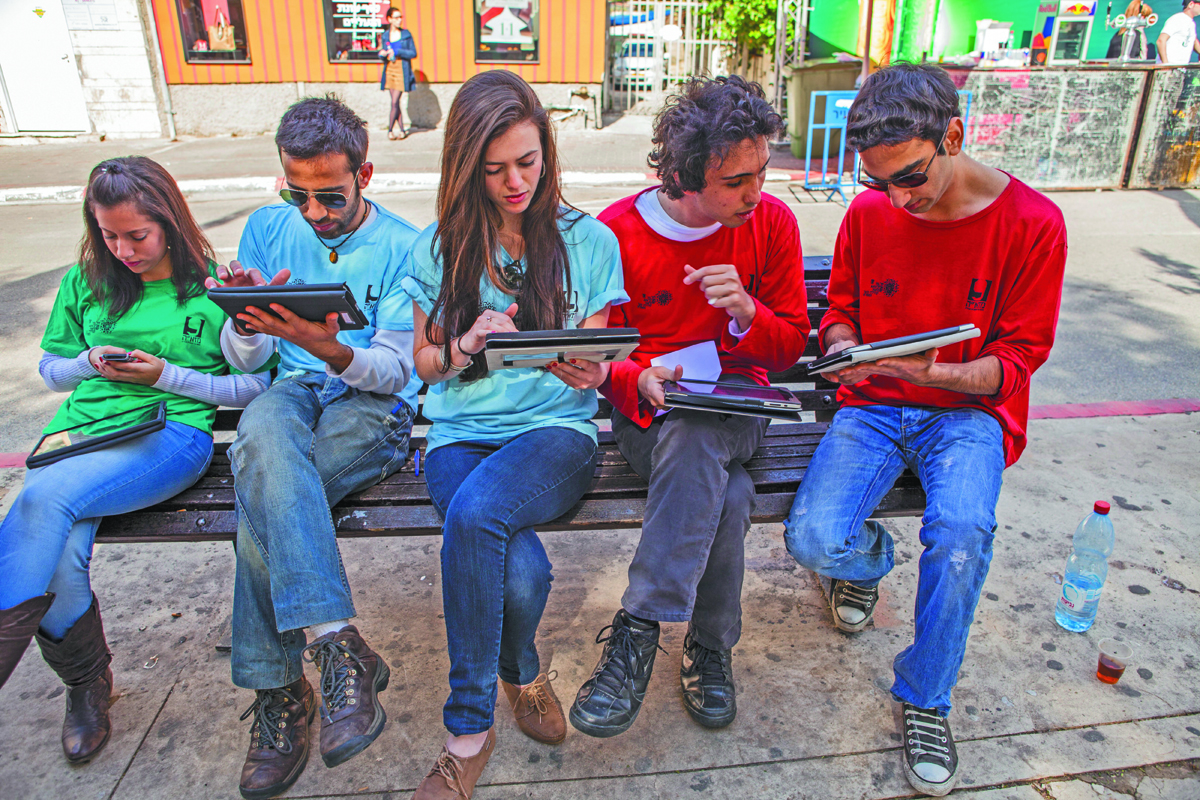Welcome to the Information Age
What defines literacy these days? The ability to read and write, for sure, but is that all? The “available symbol system” has expanded far beyond the printed word in our era, often referred to as the Information Age. We now have research, data, analysis, and opinion — in the forms of text, images, videos, and audio — all available digitally at the click of a button. As our definition of literacy has expanded in the Information Age, so has our definition of “text.” That term used to refer exclusively to the printed word, but today it can refer to any cultural product — everything from advertisements to clothing to Internet memes.


Like the Gutenberg press, advances in technology throughout history have led to expansions in literacy.
With all of these changes to the ways that information is created and communicated, can people really be considered fully literate in our society if they cannot navigate the Internet, conduct online searches, tell good information from bad, and communicate through social media? These days, it’s not enough to be able to read and write in print for school; people have to be fluent in all sorts of mediums for all sorts of audiences. Think about the kinds of “symbol systems” that you are likely to encounter in a typical week: textbooks for various classes, advertisements on TV and online, messages you read or send to friends through your phone or email, movies you’ve watched, and music you’ve listened to.


This photograph shows literacy in action in the twenty-